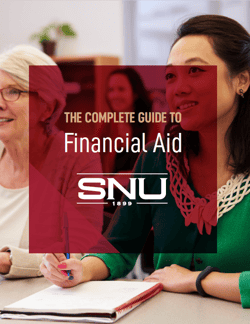-
Programs
Not Sure Where to Start?
- Associate Programs & Certificates
- General Studies
- Associate of Arts in Business
- Physical Therapist Assistant
- Professional Services & Certificates
- Special Education Bootcamp
- View All
- Undergraduate Programs
- Business Administration
- Criminal Justice
- Cybersecurity
- Education
- Family Studies and Gerontology
- Healthcare Administration
- Organizational Leadership
- Accelerated General Education
- View All
- Graduate & Doctorate Programs
- Doctorate of Education in Administration & Leadership
- M.A. Administration of Special Ed.
- M.A. Applied Psychology
- M.A. Educational Leadership
- M.A. Sports Management & Administration
- M.A. Teaching
- MBA, 12- 18 months
- MBA - Healthcare Administration
- Master of Organizational Leadership
- M.S. Counseling Psychology
- M.S. Exercise Science - Health & Human Performance
- M.S. Exercise Science - Wellness
- M.S. Instructional Design Technology
- M.S. Management
- M.S. Physician Assistant
- Alternative Certification (Teaching or Special Ed.)
- View All
- Resources
- Tuition & Aid
- Military
Master of Science in Counseling Psychology
Trains students to become successful, impactful counselors licensed in the state of Oklahoma.

"The Counseling Psychology Program at Southern Nazarene University has not only solidified my love for this field but has also reignited my love for the classroom. The program’s curriculum emphasizes the importance of exploration within theory, self, and interpersonal relationships, creating a holistic educational experience. The faculty care deeply for each of their students and are committed to providing the tools for excellence. Thanks to this program, I know I will be gaining much more than a degree. I’m developing the confidence and competence needed to step into the field of counseling. I highly recommend this program to anyone passionate about helping others and eager to grow both personally and professionally."
Victoria M.
GPCP Student Group #63
- PROGRAM OVERVIEW
- START DATES
- REQUEST MORE INFO
- FREQUENTLY ASKED QUESTIONS
- COURSES
- FACULTY
- ADMISSIONS
- LOCATIONS
- PROGRAM RESOURCES
Program Overview
The Master of Science in Counseling Psychology (MSCP) degree is a 60-hour minimum program designed to meet the state of Oklahoma’s academic licensure requirements for the Licensed Professional Counselor (LPC).
The MSCP degree, in addition to the 30 hours of the MAAP degree, consists of a minimum of 21 additional hours in counseling-specific coursework, including counseling methods, theoretical foundations and applications, and treatment. In addition to the courses, MSCP students complete 150 hours of practicum hours (4 credit hours) and 450 hours of internship (5 credit hours), with 250 of those 600 total hours being direct client contact hours. Work on both components of the program (courses and practicum/internship) occurs simultaneously.
Be a Professional Counselor –Being a professional counselor provides individuals the opportunity to offer hope and transformation. SNU offers degree programs that will set you on the path to make a difference in the lives of others.
Graduate Programs in Counseling and Psychology Student Handbook
The coursework in the SNU Graduate Programs in Counseling and Psychology is designed to prepare graduates to sit for the licensure exams and fulfill all academic requirements to be licensed in the field of counseling in the state of Oklahoma as a Licensed Professional Counselor (LPC). Students seeking licensure in other states should consult with the program director. Information known about preparation for licensure in US states and territories outside of Oklahoma has been compiled on our Preparation for Licensure by State Disclosure Report.
Upcoming Start Dates
Request More Info
Fill out the form below and an enrollment counselor will reach out!
Frequently Asked Questions
A licensed counselor provides therapeutic support to individuals, couples, or families, helping them address and manage mental health issues, emotional difficulties, and behavioral challenges. With a Master of Science in Counseling Psychology from SNU, licensed counselors are equipped to work in settings such as private practice, schools, and mental health clinics. They use techniques like cognitive-behavioral therapy, crisis intervention, and client-centered approaches to help clients achieve emotional well-being and navigate personal challenges.
Applicants who are interested in working in the mental health field as a professional counselor should apply to this program. The generalist training allows for a career as an LPC who works with individuals of all age ranges, couples, and families.
Numerous mental health facilities are constantly in need of therapists. In addition, many of our graduates go on to develop successful private practice clinics. Jobs are easy to come by in the mental health field, as the need for good therapists has increased exponentially over the past decade.
Here are several jobs you can pursue with a Master of Science in Counseling Psychology from Southern Nazarene University:
- Licensed Professional Counselor (LPC) – Provide therapeutic counseling to individuals, groups, and families.
- School Counselor – Support students’ academic, emotional, and social development.
- Substance Abuse Counselor – Help individuals recover from addiction through specialized therapy.
- Marriage and Family Therapist – Assist couples and families in resolving conflicts and improving relationships.
- Rehabilitation Counselor – Work with individuals facing physical, emotional, or mental disabilities to help them achieve independence.
- Mental Health Counselor – Provide therapy for those dealing with mental health issues in clinics, hospitals, or private practice.
Salaries continue to increase. Ten years ago, therapists were making approximately $40k per year, but that number has increased rapidly over the past decade. Many therapists have contracts in the range of 70-80k, depending on their site, and can eventually make six figures in private practice after establishing their name and credentials.
First, our program has been around since the early 1990's. We have been successfully training therapists for over 30 years. In addition, our reputation is our primary selling point and has been strong for many years. Our program works to be excellent at what we do related to the training of therapists. We successfully grew our onsite training clinic--Renew Counseling Center--into a robust clinic that now houses all practicum students and numerous interns. As such, students will get exceptional in-class and practical training in our program, which is unique amongst other programs. We have weekly didactics on various mental health-related topics that you will not get in the classroom. In addition, our faculty are also clinicians, meaning that they are not just presenting information that they learned in graduate school many years ago. Instead, we are on the cutting edge of treatment and research as we practice what we teach students. The cohort model allows students the opportunity to go through the program with the same group of students and develop a family atmosphere. In addition, our faculty work hard to make sure students have a positive experience in the program. While our program is rigorous, we scaffold students in unique ways and make sure that students are getting their money's worth out of the program. You will leave SNU with a one-of-a-kind training experience and reputation that will make you a sought-after therapist in the field for years to come.
The program is rigorous as it should be for master's level work. We often tell students that you will spend 12-16 hours outside of class per week on reading/writing assignments to be successful. In addition, years 2 and 3 require clinical training experiences, meaning that in addition to class times, you will be onsite at our training clinic for practicum during your second year for a few hours a week. In year three, you begin your internship experience, which can range anywhere from 10-20 hours per week, depending on the site. Flexible schedules in year two and three help students enjoy their experience and manage anxiety.
This program costs approximately $38,940 ($649 per credit hour) + Books and $150 Application fee
Yes, we have a robust alumni program that often serves as a great place to find/advertise jobs. Our reputation in the field has been strong for over 30 years. Networking opportunities also exist online, and while job placement is not currently offered, there are multiple opportunities for in-person networking at SNU career fairs, the annual Women in Leadership Symposium, and SNU's monthly Business and Leadership Network.
In a day-and-age in which convenience has become the selling point of many graduate programs, our program has focused instead of excellence. We pour into this program and expect students to do the same, meaning that the value you get of your degree and future career are unmatched.
Courses
This degree prepares students for more than the practical duties of their future career in counseling—it prepares them to enter the field as an insightful, well-rounded individual ready to make a difference. For an in depth understanding of learning outcomes, review the courses and descriptions below.
Lifespan Development covers theoretical and research approaches to the development of human abilities and behavior throughout the lifespan. The course addresses a variety of theoretical approaches, as well as different developmental tasks across the lifespan. In order to more fully understand the issues and dynamics of counseling, it is imperative to have a clear grasp of the processes involved in human development. Such understandings of development are important because many clients enter counseling with problems that are the result of disrupted or dysfunctional developmental processes. (3 credit hours)
This course provides an emphasis on describing, classifying, and differentiating deviant behavior syndromes according to the current, prevailing classification system in the United States (Diagnostic and Statistical Manual of Mental Disorders). Literature dealing with description, etiology, and prognosis of various disorders will be examined. (3 Credit Hours)
This course provides an overview of basic neurophysiology, as it is relevant to behavior, mood, and psychopathology. It also examines the neurochemistry of the major classifications of psychotropic medications as they relate to treating mental disorders, their effects and side effects, and relevant concerns for clients that take them. In addition, the course will acquaint students with neurophysiology connected to abuse and addiction of alcohol, prescription drugs, and illicit substance abuse, including the connection between the effects of brain changes and resulting problematic behaviors that are a focus of treatment. It offers students important implications for counseling and educating individuals and families presenting with psychopharmacological, addiction, and other substance-related concerns. (3 Credit Hours)
This course acquaints students with how to design, conduct, and analyze research for the purpose of assisting students to review and critique relevant research in counseling, as well as to integrate research into clinical practice. In addition, the course addresses research ethics and methodology. Topics may include basic research designs and basic statistical analyses, including experimental, quasi-experimental, survey, and archival research. (3 Credit Hours)
This course provides students with the knowledge and requisite skills to address the wide range of topics and concerns surrounding human sexuality in the counseling relationship. Students will develop increased comfort and competency in engaging a diverse range of clients on topics of sexuality that include the expression of human sexuality and intimacy across the lifespan, attitudes and perspectives on sexuality, problems in sexual functioning, and therapeutic interventions. (3 Credit Hours)
This course provides an introduction and overview of the assessment process, beginning with the basics of test construction and measurement. Students will learn how to appropriately select, administer, and score neuropsychological and psychological tests in the areas of cognitive and personality assessment for children, adolescents, and adults. In addition, this course is aimed at helping students integrate psychological data obtained from clinical interviews and testing into a rich understanding of human functioning. (3 Credit Hours)
This course begins by making the case that all modern psychotherapeutic discourse is moral discourse and therefore contains presuppositions about the human good life. The course then examines the presuppositions of the Christian tradition regarding human nature, the good life, and the practices that shape human transformation. Students are then asked to examine their own conceptions of human nature and the good life and the relationship of these conceptions to their personal narratives, religions traditions, and cultural and historical contexts. (3 Credit Hours)
This course introduces students to the primary concepts related to the process of psychotherapy and the relational ideas that are central to the practice of counseling. Relationship building skills and techniques, including interviewing, reflective listening, and the development of insight and self-understanding are explored. Students are also introduced to the profession of counseling and will begin the process of discussing how to make sound clinical decisions and the role of the mental health clinician throughout the professional lifespan. (3 Credit Hours)
This course is designed to provide a survey of ethical, legal, and professional issues facing counselors and others in human services. Emphasis is given to raising awareness of the complexities of ethical issues in professional clinical practice. Students will also develop an understanding of the importance of record keeping and proper clinical documentation, as well as learn about confidentiality and the differing professional roles faced by psychotherapists. (3 Credit Hours)
This course will focus on the diverse identity demographics with which counselors interact, especially related to race and culture, religion, gender, age, sexuality, disability, and socio-economic status, emphasizing the implications of these factors for counseling. Students will have the opportunity to examine counseling approaches with persons of varying identities by analyzing various barriers to cultural responsiveness and ways to incorporate cultural responsiveness in counseling. In addition, students will be asked to examine personal assumptions regarding internalized assumptions and biases about other persons and groups of varying demographics. Students will learn an intersectional approach to conceptualizing counseling cases and applying counseling techniques. (3 Credit Hours)
In conjunction with PSY 5292, students will begin supervised introductory clinical experiences and practice with oversight at the training clinic. The practicum occurs concurrently with coursework and follows guidelines set forth in licensure preparation. Through readings, seminar discussions, written assignments, and supervision during the practicum, students will understand the aspects of training that are essential in becoming a competent counselor and incorporate such information into clinical practice. Students will also understand and demonstrate competencies for suicide risk consultation and intervention. Practicum(s) will total a minimum of 150 hours of service. (2 Credit Hours)
This course provides an overview of the various psychoanalytic, psychodynamic, and interpersonal approaches to counseling, specifically offering an introduction to the various perspectives on theory and technique. This course also examines the historical development of these approaches, the contemporary impact and understanding of these approaches in the counseling field, and the underlying anthropological and philosophical assumptions of these approaches. Students will have the opportunity to observe these various approaches, as well to apply them practically through role-play and theoretically through case conceptualization and treatment planning. (3 Credit Hours)
This course provides an overview of the various behavioral, cognitive, and other evidence-based approaches to counseling, specifically offering an introduction to the various perspectives on theory and technique. This course also examines the historical development of these approaches, the contemporary impact and understanding of these approaches in the counseling field, and the underlying anthropological and philosophical assumptions of these approaches. Students will have the opportunity to observe these various approaches, as well to apply them practically through role-play and theoretically through case conceptualization and treatment planning. (3 Credit Hours)
This course provides an overview of family structure theories and family systems approaches and applications to counseling. This course also examines the historical development of these approaches, the contemporary impact and understanding of these approaches in the counseling field, and the underlying anthropological and philosophical assumptions of these approaches. Students will have the opportunity to observe these various approaches, as well to apply them practically through role-play and theoretically through case conceptualization and treatment planning. (3 Credit Hours)
In conjunction with PSY 5192, students will continue supervised introductory clinical experiences and practice with oversight at the training clinic. The practicum occurs concurrently with coursework and follows guidelines set forth in licensure preparation. Through readings, seminar discussions, written assignments, and supervision during the practicum, students will understand the aspects of training that are essential in becoming a competent counselor and incorporate such information into clinical practice. Students will also begin to develop an understanding of how to integrate theory into practice to form a theoretically sound treatment plan. Practicum(s) will total a minimum of 150 hours of service. (2 Credit Hours)
This is an applied psychotherapy lab course that engages the student in both the theoretical foundations for group psychotherapy and in the actual experience of facilitating a psychotherapy group. Students will review literature regarding appropriate referrals to this modality of treatment as well as learning techniques to enhance the efficacy of group therapies. Much of this course will involve an experiential learning model as students participate in group process. (3 Credit Hours)
This advanced course will serve as an overview course to introduce students to some of the basic issues that arise when providing services to children and adolescents. We will address issues that arise in working with youth including child maltreatment, divorce, trauma, and legal/ethical issues. Information pertaining to the treatment of childhood disorders based upon empirical evidence (emphasizing behavioral strategies) will be discussed. Special focus will be given to Parent-Child Interaction Therapy (PCIT) and Coping Cat (anxiety treatment manual). Adherence to the scientist-practitioner model and the relative contributions of research to clinical practice will be emphasized throughout the course.
This course will focus on methods for assessing, diagnosing, and treating alcohol and drug-related problems in counseling settings. The course offers strategies for screening clients for substance-related issues, taking a detailed alcohol/drug history, working with ambivalence and increasing motivation to change addiction behaviors, examining family dynamics that contribute to addiction, treatment planning, and counseling interventions. The course will focus on assessing and treating a full range of substance-related and addiction problems, such as individuals with beginning substance use, individuals that do not acknowledge or understand more serious problems, more pervasive or diagnosed substance-related addictions, and family members of those with substance-related problems. (3 Credit Hours)
In conjunction with PSY 6493, students will begin supervised external clinical experience and practice, as approved by the program. The internship occurs concurrently with coursework and follows guidelines set forth in licensure preparation. Through readings, seminar discussions, written assignments, and supervision during the internship, students will increase their autonomy as professional practitioners while utilizing feedback from clients and supervisors. Students will also begin the process of developing their Clinical Competency Interview capstone project. Internship(s) will total a minimum of 450 hours of service. (2 Credit Hours)
The purpose of this course is to provide counseling students with the knowledge and skills essential in assisting self and others with career development/vocational issues. The course will present an overview of career counseling theories, along with assisting students in the appropriate implementation of career assessments and techniques in service of helping individuals make career choices. The course will also aid students in understanding the psychological factors that often interact with and impede healthy career development. (3 Credit Hours)
In conjunction with PSY 6193, students will continue supervised external clinical experience and practice, as approved by the program. The internship occurs concurrently with course work and follows guidelines set forth in licensure preparation. Through readings, seminar discussions, written assignments, and supervision during the internship, students will work toward becoming independent professionals in the counseling field upon graduation, including preparation for licensure requirements. Students will present and defend their Clinical Competency Interview capstone project. Internship(s) will total a minimum of 450 hours of service. (3 Credit Hours)
Meet our SNU Faculty
Dr. Scott Secor, Ph.D
Program Director
Scott Secor, Ph.D. is a licensed health service psychologist, licensed professional counselor, and the program director for both the Master of Arts in Applied Psychology and Master of Science in Counseling Psychology programs. Dr. Secor obtained his Ph.D. from the University of Oklahoma in Counseling Psychology and completed his predoctoral internship in Clinical Psychology at the VA Medical Center/OU Children’s Hospital in Oklahoma City.
Dr. Secor was previously the Director of Clinical Training for the SNU Graduate Programs in Counseling Psychology and has been an instructor in the program since 2012. He currently teaches Neuropsychopharmacology, Theories and Techniques of Counseling I, Research Methods, Lifespan Development, Survey of Psychological and Cognitive Assessment, Practicum II, and Internship II. He became the co-director of Renew Counseling Center in 2021 helping to build Renew into a large training clinic that currently consists of nearly 70 clinicians. He oversees the financial picture for Renew and the overarching vision for the clinic as a part of his current duties.
Clinically, Dr. Secor practices from an existential/psychodynamic perspective. His specialty is psychological/neuropsychological assessment. He routinely conducts personality assessments, along with evaluating neurodevelopmental disorders (e.g., ADHD and Autism) and neurodegenerative disorders. Dr. Secor has been trained in the Rorschach Performance Assessment System and enjoys integrating the Rorschach into his clinical assessments. His research focuses on psychological assessment, specifically how the Rorschach informs different diagnostic pictures.
Read LessDr. Camryn Sanders Lopez
Director of Clinical Training
Camryn Lopez is the Director of Clinical Training and an Assistant Professor for both the Master of Arts in Applied Psychology and Master of Science in Counseling Psychology programs. Dr. Lopez is currently approved for postdoctoral training under Dr. Scott Secor and is set to complete the requirements to become a licensed health service psychologist in February of 2025. Dr. Lopez obtained her Psy.D. at Oklahoma City University in Clinical Psychology and completed her predoctoral internship at the University of Arkansas Counseling and Psychological Services.
Dr. Lopez began as an instructor in the program in 2023. She currently teaches Theories and Techniques of Counseling II, Philosophy of Interpersonal Relationships, Legal and Ethical Issues, Psychopathology, Practicum I, and Internship I. Prior to her time at Southern Nazarene University, she taught as an adjunct professor at Oklahoma City University and the University of Central Oklahoma.
Clinically, Dr. Lopez practices Cognitive Behavioral Therapy as well as Acceptance and Commitment Therapy. She also conducts psychological and neurodevelopmental assessments with an emphasis on the assessment of autism in adults. Dr. Lopez oversees practicum and internship at Renew. She provides both individual and group supervision to both masters and doctoral level students. She also runs outreach for Renew where she assists with the promotion of mental health on the SNU campus and in the broader Bethany community. As she is a certified yoga instructor, her research focuses on yoga as an adjunct to traditional mental health treatments.
Read LessHolly Sapp, MA, LPC
Executive Clinical Director
Holly Sapp, MA, LPC is a licensed professional counselor and board approved supervisor. She is the executive clinical director for Renew Counseling Center at Southern Nazarene University. Holly obtained her Master of Arts degree from Southern Nazarene University in 2011.
Holly has worked in private practice, and was the director of the Health and Wellness Program in Deer Creek Public Schools from 2016-2021, during which time she trained future counselors and implemented suicide prevention programs in the school. She has been a contract therapist at Renew since its opening in 2012 and teaching the graduate course Counseling Children and Adolescents since 2019. She became a co-director at Renew in 2021 and is currently the executive clinical director of Renew, where she leads supervision and clinical operations.
Holly enjoys working with clients of all walks of life, and has experience working with children and adolescents; adult individuals, college students in particular; and couples. She also enjoys supervision and has supervised over 70 interns and candidates for licensure in the last 8 years.
Read LessAdmission Steps
The faculty and administration in the Graduate Programs in Counseling and Psychology take the process of training counselors very seriously. The application process is therefore very thorough and critical to both our admissions and educational process. We greatly value our application process that accepts only those whom we believe will make the best counselors. We do not require the GRE because we do not want to simply quantify potential applicants. Our desire is for our admissions process to allow us to get to know each applicant as a person in order to see if that person will be a good fit for our program, and that our program will be the right program for the applicant. Also, we firmly believe that our program is challenging, demands excellence from our students, and more than adequately prepares all of our students for the variety of situations faced as a counselor. We are looking for future students who can excel in the classroom, be flexible in thought, and have the ability to connect with and engage others from various backgrounds and circumstances. We accelerate our program because we want our students to get the best training possible, while also being able to start their career as soon as possible.
You must meet the following requirements to apply to our program:
- Hold a baccalaureate degree from a regionally accredited college or university
- Taken at least 18 hours of psychology related undergraduate coursework (General or Introduction to Psychology and Statistics are required)
- GPA of 3.0 or higher is considered competitive
International Students: Please click here to find out more about the application requirements. http://snu.edu/international-admissions
If you need assistance with a learning, physical, or psychological disability that may affect your application process, we encourage you to contact the Academic Center for Excellence, Disability Services at (405) 717-6272 (M-F 8:00-5:00). All students with disabilities are encouraged to seek assistance from ACE (LRC 325).
Click here to view the complete admissions process.
Graduate Programs in Counseling and Psychology Student Handbook
Locations
Bethany Campus
6729 NW 39th Expressway,
Bethany, Oklahoma 73008
Program Resources
Getting started is easy
Request more information
Ready to apply? It takes 5 minutes!
Apply NowApplication Requirements
- Meet the admission requirements for your specific program
- Apply for an Undergraduate or Graduate Program
- Submit transcripts
- Be admitted, get advised, and enroll

Text With an Enrollment Counselor
Ready to make a difference in people’s lives? Text an enrollment counselor today to see how SNU’s grad counseling degree can get you one step closer to a rewarding career.










%20(1)%20(1).jpg?width=250&height=130&name=GettyImages-1039533386%20(1)%20(1)%20(1).jpg)



.png?width=250&height=319&name=Counseling%20Lumen%205%20thumbnail%20%20(1).png)
